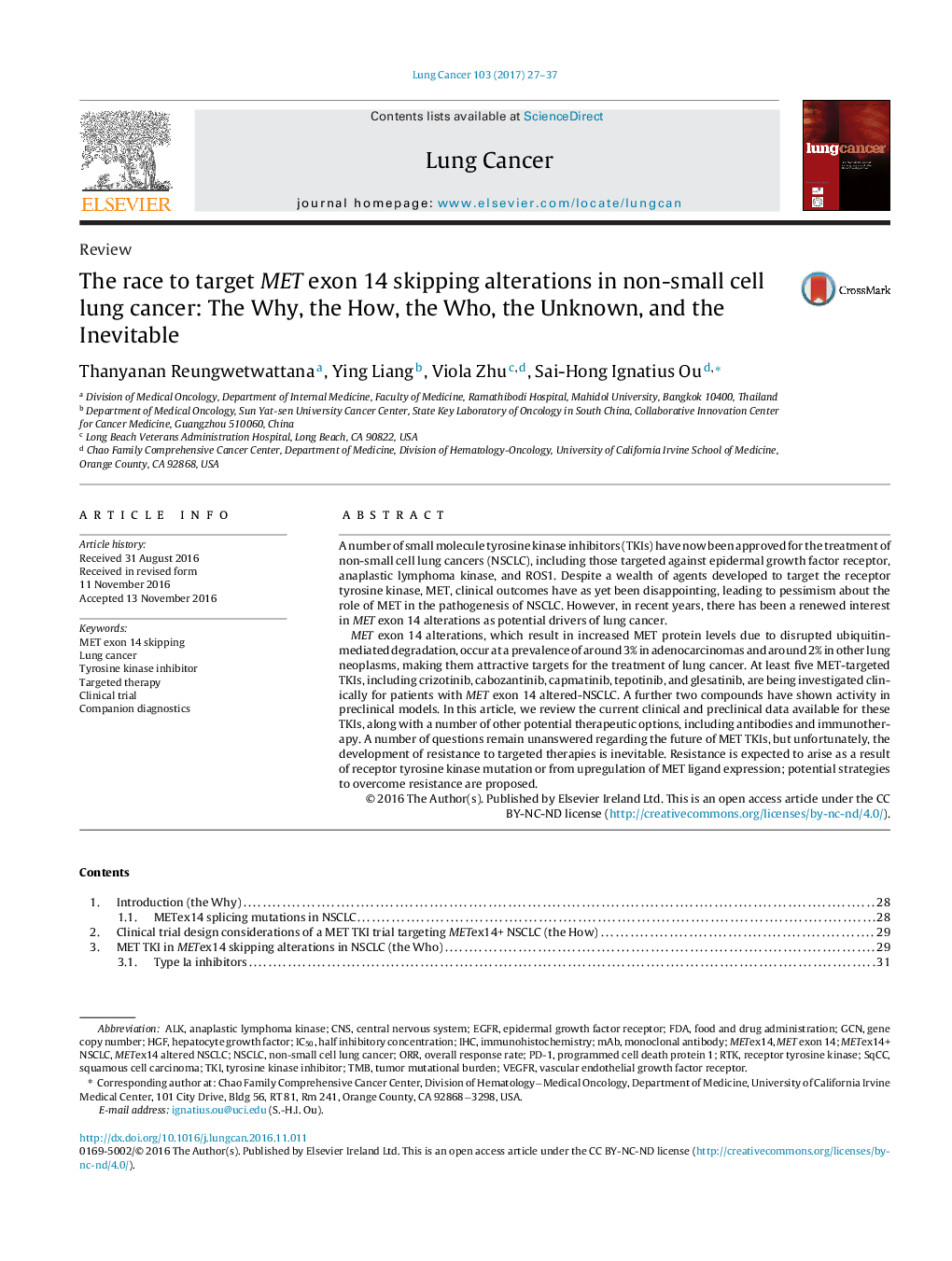| کد مقاله | کد نشریه | سال انتشار | مقاله انگلیسی | نسخه تمام متن |
|---|---|---|---|---|
| 5528438 | 1547964 | 2017 | 11 صفحه PDF | دانلود رایگان |
- METex14 alterations occur in 2-3% of lung cancers.
- MET TKIs have shown preliminary clinical benefit in patients with METex14+ NSCLC.
- Targeting of METex14 alterations is expected to lead to the approval of MET TKIs in NSCLC.
- Drug switching and/or combination therapy may be required to target resistance.
A number of small molecule tyrosine kinase inhibitors (TKIs) have now been approved for the treatment of non-small cell lung cancers (NSCLC), including those targeted against epidermal growth factor receptor, anaplastic lymphoma kinase, and ROS1. Despite a wealth of agents developed to target the receptor tyrosine kinase, MET, clinical outcomes have as yet been disappointing, leading to pessimism about the role of MET in the pathogenesis of NSCLC. However, in recent years, there has been a renewed interest in MET exon 14 alterations as potential drivers of lung cancer.MET exon 14 alterations, which result in increased MET protein levels due to disrupted ubiquitin-mediated degradation, occur at a prevalence of around 3% in adenocarcinomas and around 2% in other lung neoplasms, making them attractive targets for the treatment of lung cancer. At least five MET-targeted TKIs, including crizotinib, cabozantinib, capmatinib, tepotinib, and glesatinib, are being investigated clinically for patients with MET exon 14 altered-NSCLC. A further two compounds have shown activity in preclinical models. In this article, we review the current clinical and preclinical data available for these TKIs, along with a number of other potential therapeutic options, including antibodies and immunotherapy. A number of questions remain unanswered regarding the future of MET TKIs, but unfortunately, the development of resistance to targeted therapies is inevitable. Resistance is expected to arise as a result of receptor tyrosine kinase mutation or from upregulation of MET ligand expression; potential strategies to overcome resistance are proposed.
Journal: Lung Cancer - Volume 103, January 2017, Pages 27-37
